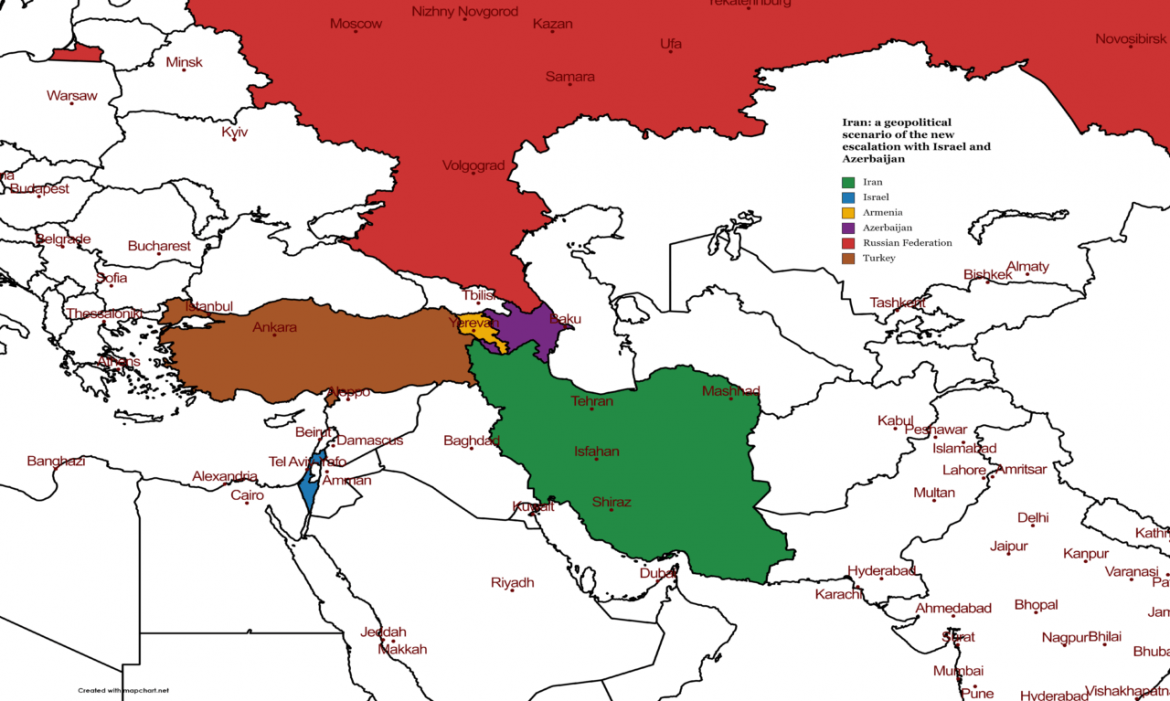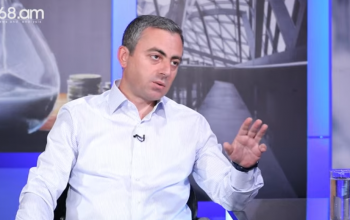By Andranik Aboyan
As Israeli missiles rain down on Iranian territory and drones are intercepted mere kilometers from Armenia’s southern frontier, the Pashinyan government remains eerily disengaged. While Tehran scrambles to defend itself from a barrage of attacks — some reportedly intercepted as close as 60 kilometers from the Armenian border — Armenia’s National Security Council has not been convened. Instead, Prime Minister Nikol Pashinyan has chosen to attend forums in Western Europe and prepare for yet another round of normalization talks with Ankara, the very sponsor of Azerbaijan’s genocidal ambitions.
This is not diplomatic indifference; it is strategic dereliction.
Armenia, with its exposed southern province of Syunik, stands to be one of the immediate victims of any prolonged war between Iran and Israel. Iran, for all its domestic contradictions, has been the only regional power to openly oppose the Zangezur Corridor — a pan-Turkic transit route that would slice through Armenian sovereign territory, sever the Armenian-Iranian border, and complete the Turkish-Azerbaijani axis. That alone makes Iran an indispensable partner in preserving Armenia’s territorial integrity.
But Iran’s ability to act as a deterrent — or even a mediator — may rapidly erode if it becomes mired in a protracted war. This war, let us remember, is not just about rockets and retaliation. It is a geopolitical struggle involving subversive tactics and proxy sabotage. The same Israeli-manufactured Spike anti-tank guided missiles (ATGMs) reportedly used in recent covert attacks inside Iran are the very weapons Azerbaijan deployed in the 2020 war and continues to integrate into its armed forces today. These munitions are not simply battlefield tools; they are symbols of a deep and toxic alliance.
The Israeli-Azerbaijani relationship — long downplayed by Yerevan’s current leadership — is not a secret. Israel supplies Baku with advanced weaponry, surveillance systems, and diplomatic cover. In return, Azerbaijan offers Israel a forward-operating presence on Iran’s northern border, oil access, and corridors for intelligence operations. Despite claims of border closure following the 2023 blockade of Artsakh, Azerbaijani cargo continues to pass through. How much of that is Israeli hardware or joint operational material? How much of it reaches Iranian separatist groups? Pashinyan’s government either doesn’t know — or pretends not to care.
In the face of all this, the Pashinyan administration has failed to articulate any coherent security doctrine. Instead of aligning with the only regional partner opposing pan-Turkic encroachment, Yerevan has doubled down on its Euro-Atlanticist delusions — attending diplomatic forums that yield nothing but soundbites, and chasing normalization with a Turkey that has never stopped enabling Armenian dispossession.
For a government that claims to represent a sovereign and democratic Armenia, its foreign policy suggests neither sovereignty nor strategy. A state surrounded by hostile neighbors, dependent on a fragile southern border, cannot afford to ignore the collapse of regional stability just across that border. Nor can it rely on symbolic gestures or empty optimism while the balance of power tilts further against it.
Iran is not a perfect ally. But it is an objective bulwark against the corridor project and the Turkish-Azerbaijani war machine. If Iran falters under the weight of Israeli aggression — and if Armenia continues to drift — Syunik will stand exposed, not just militarily but geopolitically.
Now is the time for sober diplomacy, urgent coordination, and clear-eyed recognition of who stands where. Armenia must reassert itself — not through forums and speeches, but through regional alignment rooted in survival, not submission.
The Security Council must meet. Cargo flows from Azerbaijan must be scrutinized and, if necessary, suspended. And Armenia must stop sleepwalking toward strategic isolation while the skies to its south burn.




